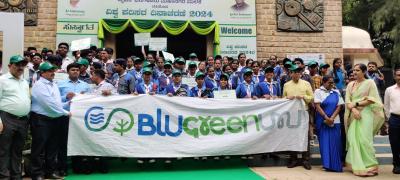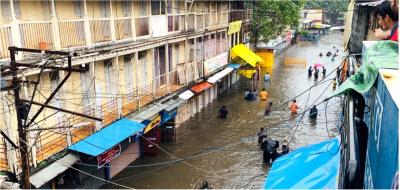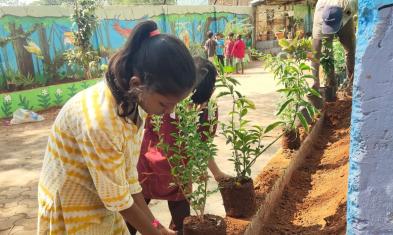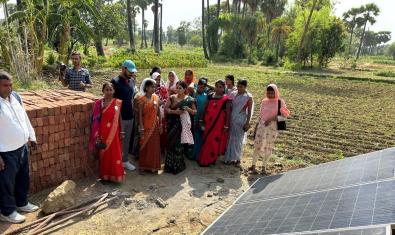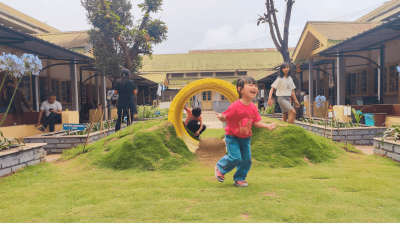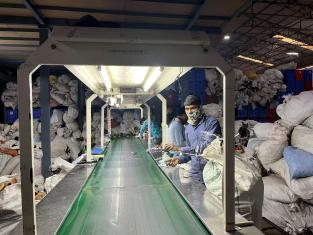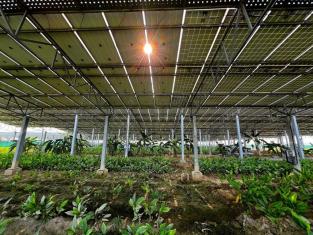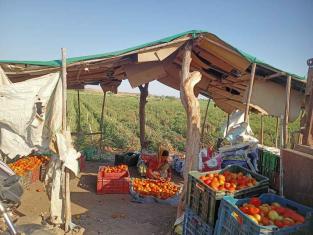Blogs
The blogs are part of WRI India’s mission to provide unbiased, expert analysis on the most important environmental issues facing the world today.
In today’s rapid-fire, fragmented information culture, we hope these insights will provide a measure of clarity to decision-makers worldwide.
-
Beyond the Blueprint: One Year of Grounding Bengaluru’s Climate Vision
by e -A year ago, on an unusually warm November morning, Freedom Park in Bengaluru was abuzz with visitors gathered around several large posters. The posters announced that Bengaluru's top leadership will be launching the city’s first-ever climate action plan. With climate enthusiasts, civil society members, government representatives and students in attendance, the events at Freedom Park got the ball rolling on the implementation of this climate action plan.
-
Small Cities, Big Impact: Multi-hazard Exposure Mapping for Prioritizing Climate Action
by , e -This is the second blog in a three-part series that presents the climate action planning process for three cities in Maharashtra. Read the first blog in the series here.
Despite efforts to enable climate action, a range of obstacles, including challenges of perception, limit their effectiveness. Climate change tends to be perceived as a distant problem, and climate action often takes a disaster mitigation approach. There is a need to shift from...
-
Bringing Nature to Children in Disadvantaged Urban Communities
by , e -A version of this blog was originally published on 14th November 2024 on the International Institute for Environment and Development website.
Nature, when combined with the enthusiasm and creativity of children, can transform inner-city wastelands into spaces for people. Nearby trees, parks, gardens, green schoolyards and other urban green spaces are not just ‘nice to have’; they are ‘need to have’ resources for...
-
Breaking Barriers for Women-led Green Enterprises in India
by , , e -In August 2024, the Hon’ble Prime Minister of India appreciated the efforts made by econsciousTM – a waste recycling start-up based out of New Delhi – in his ‘Mann ki Baat’ address. Co-founded by Sonal Shukla during the Covid-19 pandemic, econscious turns plastic waste into furniture and is a prime example of a green enterprise that produces eco-friendly products. Less known are the efforts of Mamta Devi and her venture, Didi ke Papad. Together with her group of 11 JEEViKA didis (Bihar Rural Livelihoods Promotion Society self-help group members), they use a solar-powered machine to make papad – a traditional Indian snack – and sell them in the largely rural Begusarai district of Bihar.
-
Transforming Early Childhood Development Centers into Vibrant Public Spaces
by , e -Early Childhood Development (ECD) centers in India, primarily government-led Anganwadis (early childhood play and learning centers) and primary health centers, provide basic nutritional, learning and healthcare facilities for young children (0-5 years) from low-income communities. While these centers focus on the children’s physical and social development, there is an opportunity to enhance their maintenance and add more comforts and engaging elements. Improving these aspects can encourage caregivers to spend more time in these spaces and motivate families to send their children to the centers.
-
Greening MSMEs is Critical to India’s Clean Energy Transition
by e -Micro, Small and Medium Enterprises (MSMEs) contribute to about 30% of India’s GDP and employ an estimated 15.50 crore individuals, as recorded on the Udyam Registration Portal in December 2023. Moreover, they contribute to roughly 45% of India’s total exports. These enterprises drive economic growth by fostering bottom-up innovation
-
Agrivoltaics: Reimagining Land for Better Livelihoods
by , e -A version of this photo blog was originally published on October 15, 2024 in Gaon Connection.
As the first light of dawn breaks over the farm, Ravi steps onto the field to the sight of solar panels glistening under the early morning sun. This is no ordinary farm; it is an agrivoltaics installation where the land is co-utilized for cultivating crops, raising livestock and harnessing solar energy.
-
Unlocking Optimism for Climate Action
by e -"The world is on fire, from the Amazon to California, from Australia to the Siberian Arctic. The hour is late and the moment of consequence, so long delayed, is now upon us. Do we watch the world burn, or do we choose to do what is necessary to achieve a different future?" — Christiana Figueres and Tom Rivett-Carnac in ‘The Future We Choose: Surviving the Climate Crisis’
-
Small Cities, Big Impact: Scaling up Climate Action Planning across Maharashtra
by , e -This is the first blog in a three-part series that presents the climate action planning process – from creation of the plan to its implementation – for three cities in Maharashtra. It records the learnings from this process and looks at how climate action plans can pave the way for sustainable, equitable and resilient development.
-
Tomato Troubles: Food Loss and Food Waste from Farm to Market
by e -In a small, predominantly tribal village of Jhabua district in Madhya Pradesh, Sushma and her husband Anil toil hard to cultivate tomatoes in the small parcel of land that they own. They are dependent on the income from growing tomatoes for their household expenses and to repay the loans they take to bear farming costs. However, it is not always profitable to grow tomatoes. Sometimes, they bear losses due to unforeseen weather conditions, pest infestation or poor market prices.

